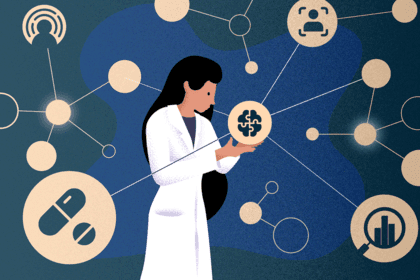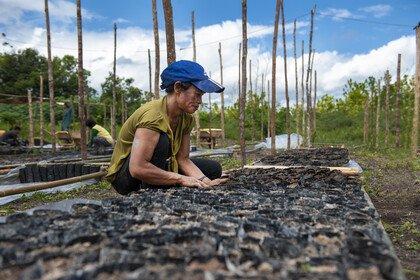
Evidence Synthesis Infrastructure Collaborative
Wellcome’s chief executive officer, John-Arne Røttingen, announces that the charitable foundation would back the development of new data and tools for accelerating “living evidence synthesis” with £45 million in funding over five years.

Wellcome
The work supported by the Evidence Synthesis Infrastructure Collaborative will enable real-time aggregation of scientific data, support open science practices, and give policymakers, clinicians, and other decision-makers access to the most up-to-date evidence. It will reduce the cost and time it takes to produce evidence syntheses, making them more accessible for researchers in the Global South or in underfunded fields.
A grasp of the state of scientific evidence is important for making decisions, but individual studies are only ever a part of the whole picture – understanding the broader state of research requires aggregating the wider literature into systematic reviews or meta-analyses, which take many studies and evaluate them as a whole.
They are powerful tools, but they are slow, which can be a problem, especially when a situation is fast-moving.
Infectious disease epidemiology is one example: In 2015, an outbreak of Zika virus arose in South America. A systematic review begun in May 2016 found and synthesised more than 700 papers on the topic, but by the time the review came out in January 2017, a further 1,400 papers had been published – and could not be included – making the review outdated before it arrived.
Ideally, new scientific research would be gathered and aggregated with existing data as soon as it is published. The process for doing that is called a living evidence synthesis.
There are several ongoing living evidence synthesis programmes, including some already funded by Wellcome. But they are domain-specific: For instance, within Wellcome, The Global Alliance for Living Evidence on Anxiety, Depression, and Psychosis (GALENOS) creates a continuously updated literature on mental health. Outside Wellcome, the Cochrane Collaboration, which produces gold-standard evidence syntheses in medicine, increasingly backs living evidence models.
These systems, however, are not coordinated, and lack funding. The new project will bring Wellcome-funded programmes together, and provide a framework which anybody – Wellcome-funded or not – can use to build their own living evidence synthesis platform.
Living evidence synthesis are labour-intensive. Retrieving and extracting relevant data from new scientific papers is not a trivial task, and using them to create useful evidence summaries and information useful for decision makers, is even less so. Creating common data infrastructure and responsibly using AI could change that. Common data sources which extract findings from scientific publications would save time, as could AI-based tools that can help evidence synthesis experts extract insights or produce summaries - keeping humans in the loop.
The project will make the process of synthesising evidence not only faster, but cheaper too. The many person-hours required for a systematic review or meta-analysis, and the considerable expertise involved, mean that they are prohibitively expensive for less well-funded institutions, including many in the Global South, or individuals to run. Removing the time-intensive data management will reduce costs, meaning that, for instance, more global health evidence syntheses work can be carried out by local research groups, and more time can be devoted to integrating local knowledge and context and engaging with policy-makers and increasing the changes that evidence can inform action.
This new initiative will provide infrastructure for anyone, not just in Wellcome-funded groups or global health-related topics, to use. Experts in fields from education and agriculture to energy and urban planning can use it to advance the state of knowledge in their own disciplines. Wellcome invites funders in these disciplines to invest in living evidence synthesis programs that build on this infrastructure and benefit from the efficiency and harmonisation it will offer.
Once, researchers looking for knowledge would have to go to physical libraries, perhaps at universities, and hope that the relevant studies and books were there. In recent decades, online databases have removed significant barriers to accessing information: scholars can search PubMed or Google Scholar. The change has been profound.
But it remains complex and difficult – a time-consuming, expert job – to aggregate and synthesise the evidence in those databases into a meaningful and accessible form, and by the time it happens, the state of the evidence has often moved on.
Wellcome hopes that the development of a living evidence synthesis infrastructure will change science just as profoundly as the move from physical books to databases: in future, the tools to create robust, constantly updated reviews of the literature will be accessible to all, giving decision-makers the information they need to inform policy, clinical decisions, or business strategy.

